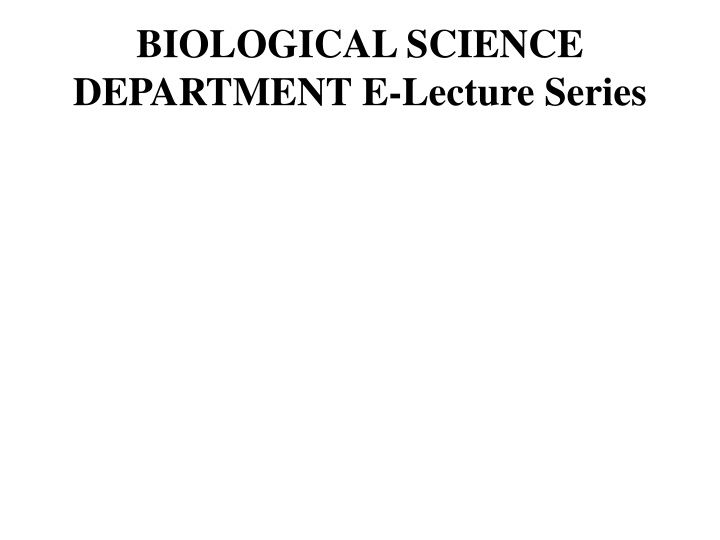
Plant Population Ecology: Understanding Growth and Regulation
Explore the course "BOT 422: Plant Population Ecology" with Prof. M. S. Ayodele to learn about natural populations, growth estimation techniques, community structures, and ecological effects on plant demographics. Gain skills in distinguishing between community members, appreciating taxon presence, conducting experiments, and reviewing current literature. Understand the effects of ecological and genetic factors on plant population dynamics.
Download Presentation

Please find below an Image/Link to download the presentation.
The content on the website is provided AS IS for your information and personal use only. It may not be sold, licensed, or shared on other websites without obtaining consent from the author. If you encounter any issues during the download, it is possible that the publisher has removed the file from their server.
You are allowed to download the files provided on this website for personal or commercial use, subject to the condition that they are used lawfully. All files are the property of their respective owners.
The content on the website is provided AS IS for your information and personal use only. It may not be sold, licensed, or shared on other websites without obtaining consent from the author.
E N D
Presentation Transcript
BIOLOGICAL SCIENCE DEPARTMENT E-Lecture Series
characteristics of natural populations and techniques of estimating the growth and regulation of population
Students who have taken this course in Plant Population Ecology should be able to do the following things namely:
Distinguish between members of a community population;
Appreciate the quantitative presence of each taxon available;
Determine means of obtaining this quantitative values
between the spatial structure, age structure, and size structure on the birth, death, immigration, and emigration rates within plant populations
Design and conduct experiments to investigate current concepts in plant population ecology
Discuss the current research literature on plant population ecology
Relative magnitudes of effects of ecological and genetic factors in demographic changes in
Animal interactions (herbivory, pollination, seed dispersal) and their effects on demographic
changes in populations and how it leads to differences between life history characteristics of
Alternative dormancy and dispersal characteristics the effect on population dynamics
Plant size distributions related to age distributions and how do these interact with localized
The effect of plant defensive mechanisms on popualtion dynamics in the presence of
3. Take-home Assignments: Enumerate and state appropriate definitions of terminologies related to
plant population
5. Field work: Demonstrative Exercises on demographic estimates
Silvertown, J., & D. Charlesworth. 2001. Introduction to Plant Population Biology, 4th edition. Blackwell Science.
Gibson, D.J. 2002. Methods in Comparative Plant Population Ecology. Oxford University Press.
Michael Begon, Martin Mortimer and David J. Thompson. Population ecology: a unified study
Harper, J.L. (1977). Population Biology of Plants. Academic Press, London.
Professor M. S. Ayodele Professor M. S. Ayodele Course Lecturer
